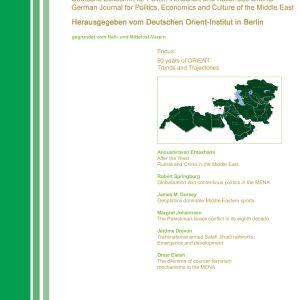Description
Since the Second World War the Middle East and North Africa (MENA) region has been the geopolitical arena in which great and major powers have flexed their muscles and, in pursuit of their global ambitions, have tried to dominate this strategic regional system and exclude their rivals from it. The United States and its Western allies, thus, came to dominate the MENA region. But, since the end of the Cold War and the global transitions which have shifted the balance of economic power from the Atlantic to the East, the West’s supremacy is no longer assured. Global transitions, also known as systemic shift, are arguably also leaving their mark on the external balance of power in this highly penetrated regional system. This article takes stock of this process of change.
Anoushiravan Ehteshami is Professor of International Relations in the School of Government and International Affairs, and Fellow of University College at Durham University. He is the Nasser al-Mohammad al-Sabah Chair in International Relations and Director of the HH Sheikh Nasser al-Mohammad al-Sabah Programme in International Relations, Regional Politics and Security. He is, further, Director of the Institute for Middle Eastern & Islamic Studies (IMEIS) at Durham, one of the oldest and noted centres of excellence in Middle Eastern studies in Europe.




Reviews
There are no reviews yet.